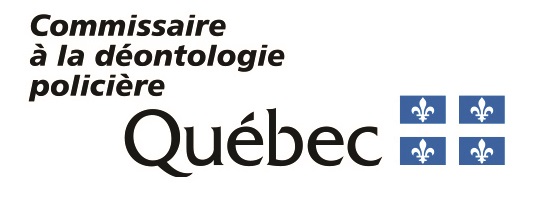File a complaint
Communication With Involved Parties
Communication With Involved Parties
During the conciliation process, we will communicate at certain times with the various parties involved in the alleged event.
The Complainant
- First contact with the conciliator and notice of meeting. The conciliator will contact the complainant to explain what to expect and what is expected of them. The conciliator will ask them if they are available in order to find a suitable time for the meeting. Subsequently, the complainant will receive a notice of meeting which will confirm the location, date and time of the meeting.
- Conciliation meeting. During the meeting facilitated by the conciliator, the complainant will have the opportunity to express themselves on the reasons for which they filed a complaint, their perceptions of what happened and the impact of the conduct of the police officer or peace officer. The complainant will also have the opportunity to listen to the perspective of the police party in order to possibly better understand why they acted the way they did.
- Objective: A satisfactory resolution of the complaint for both parties. The goal is to conclude the meeting with a written and signed agreement that could satisfy the complainant as well as the people affected by his complaint. Following the meeting, each party will obtain a copy of this written agreement.
- In case of failure of conciliation. If the complainant did not show up for the meeting or if the meeting did not lead to an agreement, the Commissioner will examine a report from the conciliator and decide whether the complaint should be rejected or if an investigation should be ordered. The complainant will receive correspondence about the decision.
- Request for revision possible. If the complaint is rejected and the complainant does not agree with the reasons provided, it is possible for them to request a review by presenting new facts or elements.
The Director of the Police Service or the Employer of the Persons Concerned by the Complaint
- Receipt of a notice after the conciliation meeting. We notify the director of the Commissioner's decision after the conciliation meeting. If this has led to a settlement, then the complaint will be rejected. If this is not the case, the Commissioner notifies the director of his decision to close the complaint or order an investigation. This person is in no way informed of the course of the session since it is confidential. They are only informed of the result.
Any person affected by the complaint
- First contact with the conciliator and notice of meeting. The police officer or peace officer will be contacted by the conciliator who will explain the process of the conciliation meeting. The conciliator will ask them if they are available in order to find a suitable time for the meeting. Subsequently, the person concerned by the complaint will receive a notice of meeting which will confirm to them where, on what date and at what time the meeting will take place.
- Conciliation meeting. During the meeting led by the conciliator, any person affected by the complaint will have the opportunity to listen to the complainant on the grounds for filing their complaint, on their perceptions about what happened, on the repercussions of his alleged conduct. They will in turn have the opportunity to explain why they acted as they did during the event and to provide information to the complainant about police powers and police practices.
- Objective: A satisfactory resolution of the complaint for both parties. The goal is to conclude the meeting with a written agreement that could satisfy the person complained about as much as the complainant. Once an agreement is reached, the complaint is deemed withdrawn and no mention of the complaint will appear in the police officer's file. Following the meeting, the subject of the complaint will obtain a copy of this written agreement.
- In case of failure of conciliation. If the complainant did not show up for the meeting or if the meeting did not lead to an agreement, the Commissioner will examine a report from the conciliator and decide whether the complaint should be rejected or if an investigation should take place. The subject of the complaint will receive correspondence regarding this decision.
<< 2. Conciliation 3. Investigation >>
File a complaint
Need help?
If you want more information or if you need help drafting your complaint, you can contact us.
deontologie-policiere.quebec@msp.gouv.qc.ca
